Assembling the SURF III Magnet
In December of 1997 the iron for the SURF III magnet structure arrived at NIST. The pieces were taken off the trucks that delivered them from Massachusetts and set down outside the SURF building. Each of these pieces weighs 13,600 kg (15 tons).
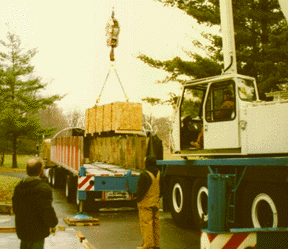
The blocks were brought into the building by floating them on load-moving pallets (the planks with hoses attached that can be seen under the block) lifted by compressed air. The cable seen in the photograph is from an electric winch used to pull the block up a ramp and into the building.
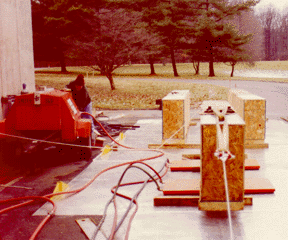
After being moved into the SURF accelerator hall, each block was uncrated and cleaned (background) to remove a protective oil coating. Then each block was polished to remove scratches and burrs. Finally, the block was moved on an overhead crane and positioned in the yoke assembly (foreground).
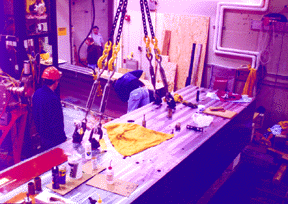
Each block was placed on four jacks, which rest on concrete blocks, to allow final alignment. The jacks can move a block up and down as well as adjust the side-to-side and end-to-end tilt of the block. Before being bolted together, the five blocks in the lower yoke were aligned to better than 25 µm (0.001 in) relative to each other.
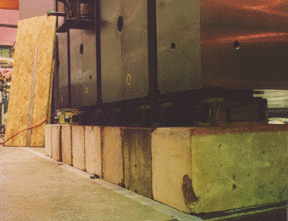
This picture shows the assembled lower yoke. The five blocks are held together in a single unit weighing 68,000 kg (75 tons). The upper surface of the yoke assembly is flat to 25 µm (0.001 in) over its entire face.
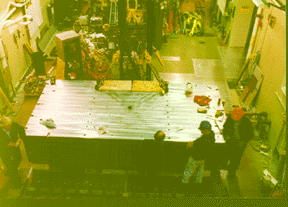
This page is online for historical purposes and will not be updated. Any questions should be sent to rvest [at] nist.gov (Rob Vest).
Contacts
-
(301) 975-3992

